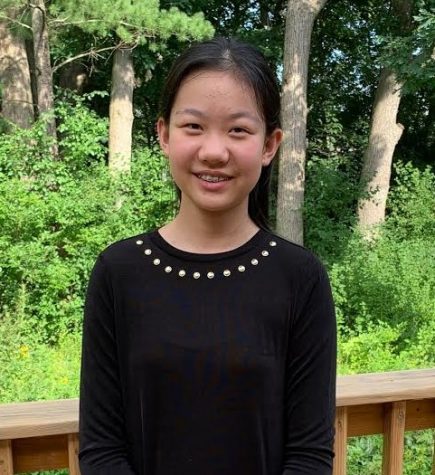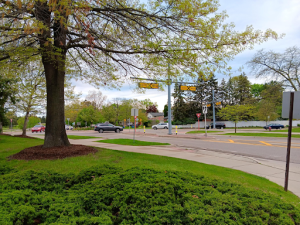Academic Games During Quarantine

Courtesy of the Head Coach for AG
Cubes used during one of the Academic Games — “Equations”
December 20, 2020
When the first case of coronavirus appeared in Michigan, most people didn’t notice. Spirits ran high among Clague’s Academic Games team as they prepared to head off to the States tournament in Grand Rapids.
The Academic Games team met on Mondays and Fridays, with players attending a state-wide tournament in March.
“Last year, everything was normal until we went to States, and the judges told us right before the fourth tournament began to go back to our rooms,” team captain Eric Li said. “On the way, we noticed that the scoreboards were gone, and we knew the tournament was canceled.”
As the 2019-2020 school year ended, the Academic Games coaches decided to resume AG using Zoom meetings.
“Before the first AG practice, I had never been the host of a Zoom meeting,” coach Yuxuan Chen said. I learned really fast how my professors felt teaching us for the last two months of the semester. My technical background definitely made it easier for me to switch and just figure out everything on the spot.”
There are a few conveniences that have come from moving the purely in-person club to an online platform.
“Online AG is good because you don’t have to go anywhere. Once practice starts, you can just go to your computer and join the meeting,” said Li. “In person, you have to drive for like 20 minutes.”
“I can just take notes online now,” player Julie Huang said. “I don’t lose my notes anymore and it’s all stored in my Drive.”
“Online practices have made it faster to put people into groups,” Chen said.
There are downsides to being online.
“I guess I miss the social interaction, stuff like that,” Huang said. “Online is just awkward, even though I don’t really like to talk that much in person and plus, people can’t cheat as much in person.”
According to the coaches, team captains, and even the players, the online environment is not nearly as easygoing and welcoming as in-person: instead of talking with people face to face, they have to deal with black boxes with names in them.
“It’s easier to find who needs help in person, because they will be right there, and their camera’s not off,” Li said. “A lot of people have questions, but they’re shy and don’t want to unmute. In-person you can see them right there, and see when they need help. You don’t even know if people are listening.”
Chen agrees.
“I feel like students are more hesitant to ask questions and get clarification on things when we are online,” Chen said. “I definitely didn’t have as many people reaching out to me asking for clarification on concepts this year. When I teach, I usually try to figure out where people are and change what and how I teach based on the audience. It is a lot more difficult to do that online when only a few people are actively participating in the discussion.”
With quarantine, AG’s number of members haven’t changed much. A normal online practice has around 60 people, which is about the same as the number of people before the quarantine.
“We have a lot of great AG programs in the elementary schools,” Chen said. “King, Logan, and Thurston had teams last year and many of those people continued to play AG at Clague.”
AG has changed a lot during the past couple of months, transforming from an in-person game to one that is purely online, and coaches and players are constantly finding ways to improve the online AG experience.
“It’s still too early to tell,” Chen said. “[but] the coaches are trying their best to make the state tournament a possibility this year.”






